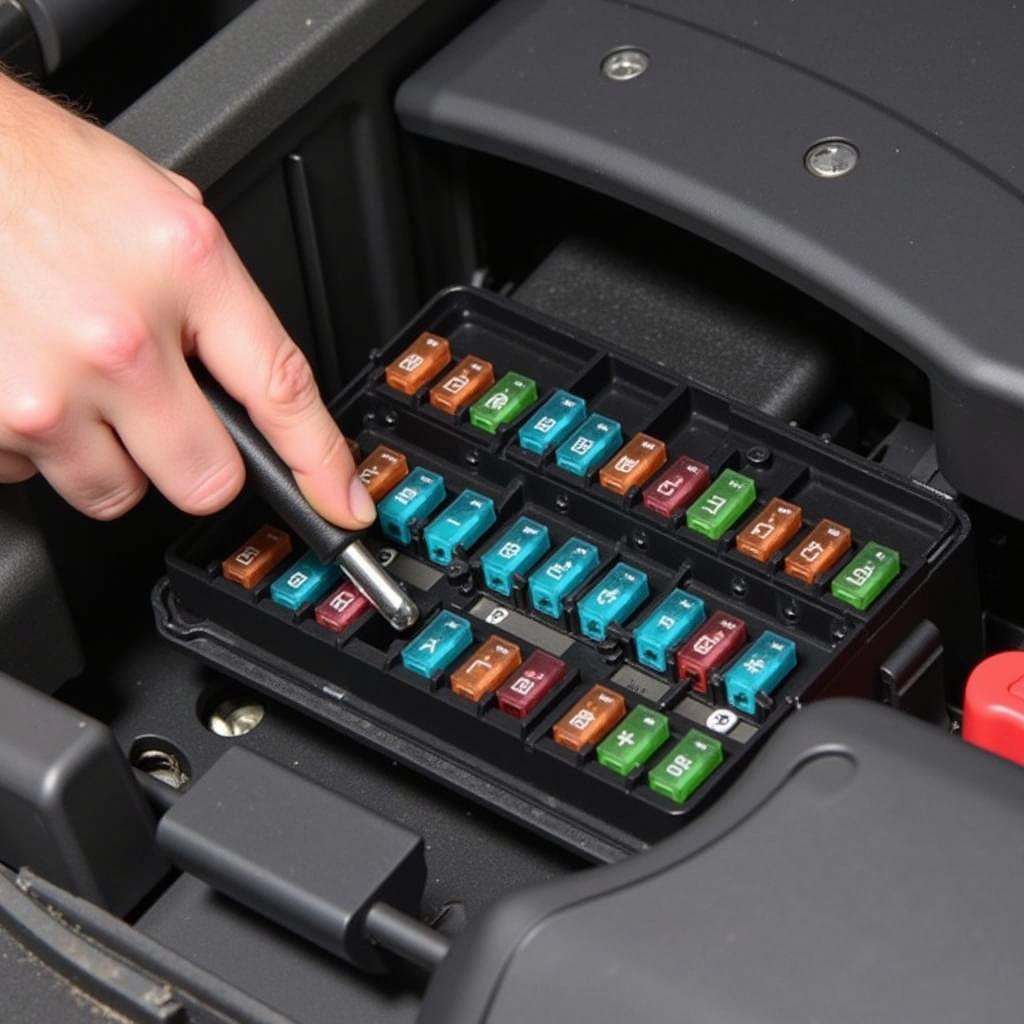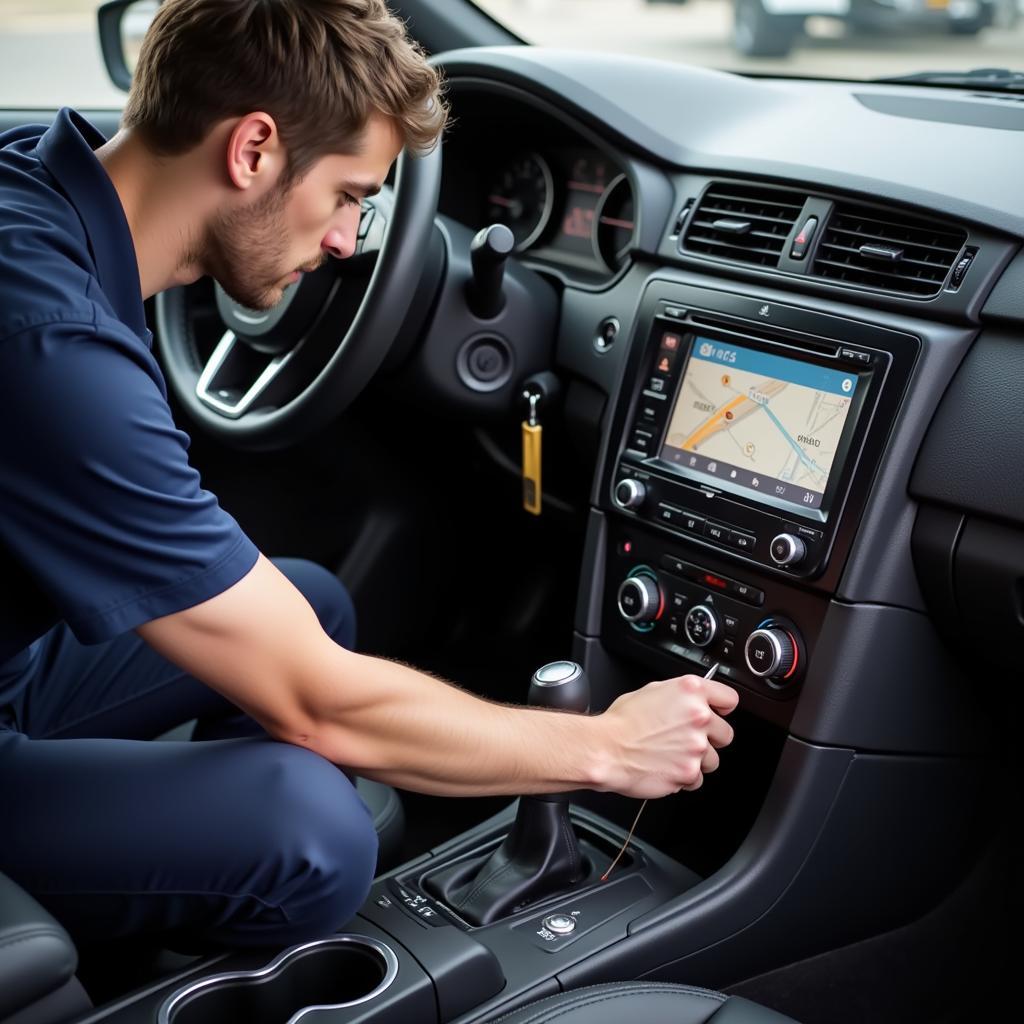Fixing your AM car radio can be frustrating, especially when you rely on it for news, traffic updates, or just enjoying your favorite talk shows. This guide will provide you with a comprehensive understanding of common AM radio problems and offer practical solutions, whether you’re a car owner, a mechanic, or an automotive technician.
Common AM Car Radio Problems
Several issues can cause AM radio reception problems. Understanding these problems is the first step towards fixing them. Some common culprits include a faulty antenna, damaged wiring, a blown fuse, interference from other electronic devices, or even a problem with the radio itself. Have you checked your antenna connection lately? Sometimes, a loose connection is all it takes to disrupt your listening experience.
Diagnosing Your AM Car Radio Issues
Before you start tearing apart your dashboard, it’s crucial to diagnose the problem accurately. Start by checking the simplest things first. Is the radio turned on? Is the volume up? It sounds silly, but sometimes the easiest fix is the most overlooked. Next, try different AM stations. If you can receive some stations but not others, the issue might be with the station’s broadcast, not your radio. If all AM stations are affected, the problem likely lies within your car’s system.
Checking the Antenna
The antenna is the most critical component for AM radio reception. Inspect the antenna for physical damage like bends, breaks, or corrosion. Also, check the antenna cable for damage or loose connections. A damaged antenna mast or cable can significantly weaken or completely block AM signals.
Identifying Wiring Problems
Wiring issues can also disrupt AM radio signals. Inspect the wiring connecting the antenna to the radio unit for any cuts, frays, or loose connections. A multimeter can help you test the continuity of the wiring and identify any breaks.
Inspecting the Fuse Box
A blown fuse can easily cut off power to your car radio. Locate your car’s fuse box (usually under the dashboard or in the engine compartment) and check the fuse associated with the radio. If the fuse is blown, replace it with a new one of the same amperage.
 Checking Car Fuse Box
Checking Car Fuse Box
How to Fix AM Car Radio Reception Issues
Once you’ve identified the problem, you can begin the repair process. For antenna problems, you might need to replace the antenna mast or cable. Wiring issues require repairing or replacing the damaged wires. A blown fuse simply needs to be replaced. If the problem is with the radio itself, you may need to have it repaired or replaced by a professional. Sometimes, interference from other electronic devices in your car can affect AM reception. Try turning off devices like cell phone chargers or GPS units to see if that improves the signal.
Seeking Professional Help
If you’re uncomfortable working on your car’s electrical system, it’s always best to seek professional help. A qualified car audio technician can diagnose and fix your AM radio problems efficiently and safely. “Don’t underestimate the complexity of car electronics,” advises John Miller, a certified automotive technician with over 20 years of experience. “A seemingly simple problem can sometimes have a deeper underlying cause.”
Conclusion
Fixing your AM car radio doesn’t have to be a daunting task. By following the steps outlined in this guide, you can diagnose the problem and take the necessary steps to restore your AM radio reception. Remember, a properly functioning AM radio is essential for staying informed and entertained on the road. If you need assistance with your car’s audio system or any other automotive issues, feel free to contact us at AutoTipPro. Our number is +1 (641) 206-8880 and our office is located at 500 N St Mary’s St, San Antonio, TX 78205, United States.
 Car Radio Repair by Technician
Car Radio Repair by Technician
“A good antenna is crucial for optimal AM reception,” adds Sarah Johnson, an electrical engineer specializing in automotive systems. “Investing in a high-quality antenna can significantly improve your listening experience.” Remember, a clear AM radio signal can make all the difference during your commute or long road trips.




Leave a Reply